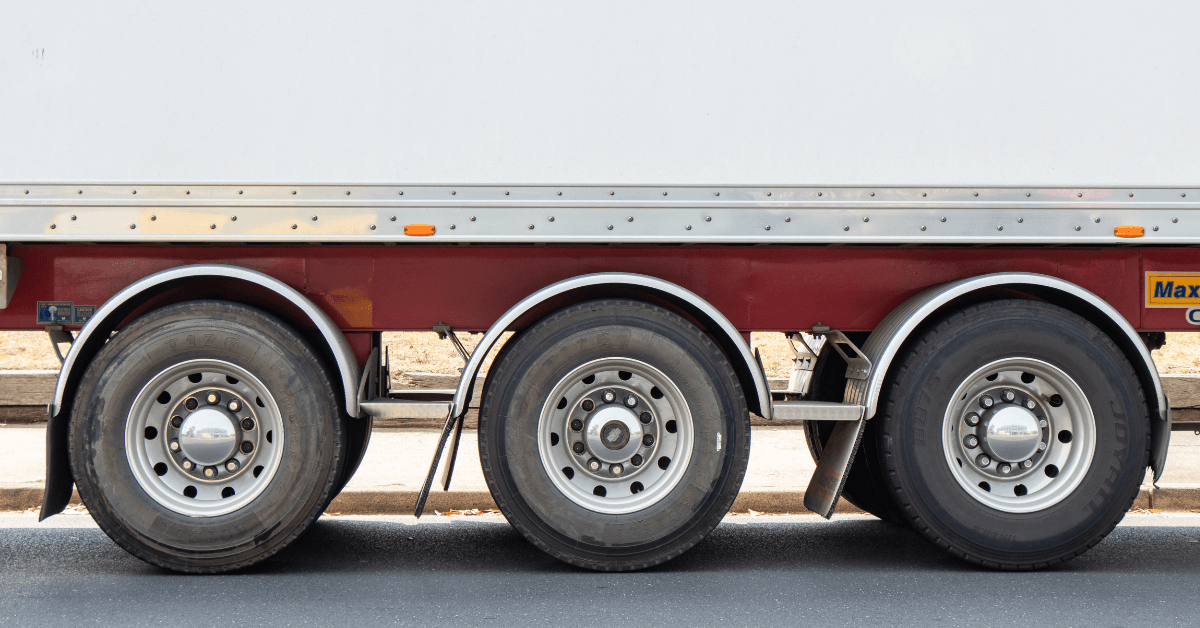As an outdoor enthusiast, you understand the thrill of hitting the road and exploring new territory. However, before you set off on your next adventure, it’s essential to make sure your trailer tires are up to the task. After all, a blowout on the highway is the last thing you want when you’re towing your home away from home.
Below, we’ll explore how to determine if your trailer tires are overloaded, and the dangers of having tires that can’t handle the weight.
How Do I Know If My Trailer Tires Are Overloaded?
To determine if your trailer tires are overloaded, check the tire’s maximum load capacity listed on the sidewall and compare it to the total weight of your loaded trailer. If the weight of your loaded trailer exceeds the tire’s maximum load capacity, your tires are overloaded and at risk of failure.
Always ensure your trailer tires are loaded within their specifications for safe towing.
Let’s take a deeper dive.
Understanding Trailer Tire Load Capacity
When it comes to towing a trailer, understanding your tire load capacity is essential. This is the maximum weight your tires can safely carry, and staying within this limit is crucial to avoid the dangers of overloaded tires. Here, we’ll explore what a tire load capacity is, how to find it for your trailer tires, and why following manufacturer specifications is so important.
To get started, tire load capacity is the maximum weight a tire can safely carry, as specified by the manufacturer. This weight includes the weight of the trailer, its contents, and the vehicle that’s towing it. You can find the load capacity for your trailer tires on the sidewall of each tire. It’s usually listed as “Max Load” or “Max Weight” and is given in pounds or kilograms.
It’s important to follow the manufacturer’s specifications for tire load capacity because exceeding this limit can cause a blowout, which can be dangerous and put you and other drivers at risk. Overloading your tires also puts additional stress and wear on the tires, which can lead to unexpected blowouts and costly repairs.
When shopping for trailer tires, make sure to choose tires with a load capacity that meets or exceeds the weight of your loaded trailer. To determine the weight of your loaded trailer, you can use a scale or consult the vehicle’s owner’s manual.
By choosing the right tires for your trailer and making sure they’re loaded within their specifications, you can ensure your safety on the road and avoid costly repairs down the line.
Signs of Overloaded Trailer Tires
Overloaded trailer tires can be dangerous, so it’s important to know the signs to look out for. By paying attention to these signs, you can take steps to avoid an overloaded tire and keep yourself and your passengers safe. Here are some signs to look out for:
1. Uneven tire wear
If your tires are wearing unevenly, it may be a sign that one tire is carrying more weight than it should be. This can lead to an overloaded tire and should be addressed immediately.
2. Low tire pressure
If the tire pressure is low, it may be a sign that the tire is struggling to carry the load. This can be a sign of an overloaded tire, so it’s important to check the tire pressure regularly.
3. Bulging tires
If your tires are bulging, it may be a sign that they are carrying more weight than they can handle. This can lead to an overloaded tire and should be addressed immediately.
4. Excessive heat
Overloaded tires can generate a lot of heat, which can cause the tires to fail. If you feel the heat radiating from your tires, it’s a sign that they may be overloaded and you should take steps to address the problem.
5. Vibration or instability
If your trailer is vibrating or feeling unstable, it may be a sign of an overloaded tire. This can be dangerous, so it’s important to address the problem as soon as possible.
By paying attention to these signs, you can avoid an overloaded tire and keep yourself and your passengers safe. If you notice any of these signs, take steps to address the problem and prevent an overloaded tire.
How to Prevent Overloaded Trailer Tires

As they say, an ounce of prevention is worth a pound of cure. The same goes for overloaded trailer tires. The best way to prevent overloaded trailer tires is to be proactive and take steps to avoid it in the first place. Here are some tips for preventing overloaded trailer tires:
1. Load your trailer evenly
Make sure that you distribute the weight of your trailer evenly over the axles. An uneven distribution of weight can lead to one tire carrying more weight than it can handle, which can result in an overloaded tire.
2. Check tire pressure regularly
Maintaining the correct tire pressure is key to ensuring the tires are carrying the weight they’re meant to carry. If the tire pressure is too low, the tire won’t be able to carry the load properly and may become overloaded.
3. Avoid overloading your trailer
Be mindful of the weight of your trailer, and avoid loading it beyond its weight capacity. This can cause the tires to become overloaded, which can be dangerous.
4. Use a weight distribution hitch
If you have a weight distribution hitch, make sure to use it. A weight distribution hitch helps distribute the weight of your trailer evenly over the axles and can help prevent overloaded tires.
5. Regularly inspect your tires
Check your tires for signs of damage or wear and tear, and replace them if necessary. Overloaded tires can cause damage to the tires, and damaged tires can lead to an overloaded tire.
Measure the Weight of Your Loaded Trailer
In order to choose the right tires for your trailer, you need to know the weight of your loaded trailer. This includes the weight of the trailer itself, its contents, and the vehicle that’s towing it. Measuring this weight is essential to ensure that you choose tires with a load capacity that meets or exceeds the weight of your loaded trailer.
There are a few different ways to measure the weight of your loaded trailer. One option is to use a scale. You can take your loaded trailer to a truck scale or a weigh station, where you’ll be able to get an accurate measurement of its weight.
Another option is to consult the vehicle’s owner’s manual, which may provide information on the weight of your loaded trailer.
It’s important to note that the weight of your loaded trailer can vary, depending on what you’re carrying. For example, if you’re towing a camping trailer with a full tank of water and supplies, the weight of your loaded trailer will be different than if you’re towing an empty trailer.
Be sure to measure the weight of your loaded trailer regularly and choose tires that meet or exceed this weight.
Related: Understanding and Preventing Inner Tire Wear on Your Boat Trailer
How to Compare Trailer Weight to Tire Load Capacity
Once you know the weight of your loaded trailer, it’s time to compare it to the load capacity of your tires. The load capacity of a tire is the maximum weight the tire can safely carry, including the weight of the vehicle, its contents, and the weight of the passengers.
To find the load capacity of your tires, you’ll need to check the tire’s sidewall. The load capacity will be listed as the “Load Index” and is a number that corresponds to a specific weight. The higher the load index number, the greater the tire’s load capacity. For example, a tire with a load index of 95 can safely carry 1,521 pounds.
It’s important to choose tires with a load capacity that meets or exceeds the weight of your loaded trailer. If you choose tires with a lower load capacity than your loaded trailer, you risk overloading the tires, which can lead to tire failure and a potentially dangerous situation.
When choosing tires, it’s always best to err on the side of caution and choose tires with a higher load capacity than your loaded trailer. This way, you can ensure that your tires are up to the task and that you and your passengers are safe on the road.
Happy and safe travels!
